What's missing from Hong Kong's anti-epidemic fight?
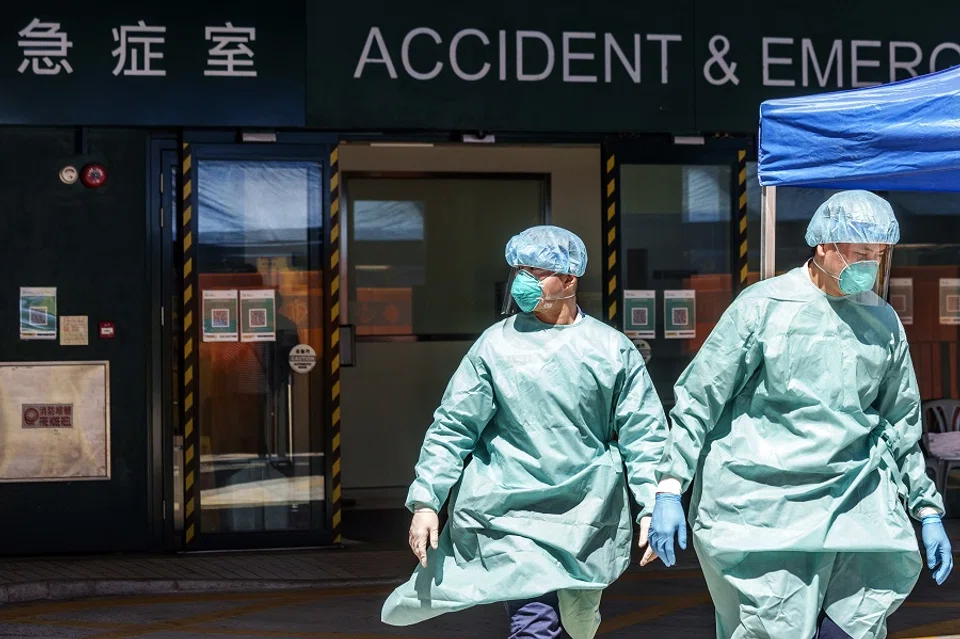
Recently, at the handover of a new Covid-19 isolation facility in Tsing Yi built with the support of the Chinese central government, Hong Kong's Chief Secretary for Administration John Lee thanked the central government and Hong Kong Liaison Office at least three times in his brief comments and responses to the media.
Subsequently, Hong Kong Chief Executive Carrie Lam went to Lo Wu for the reopening of the Shenzhen-Hong Kong cargo train route which had been halted for a decade to receive shipments of medical and daily supplies from the mainland. She also thanked the central government for their quick response and for sparing no effort to assist Hong Kong on such short notice. These episodes struck a chord with me.
The Hong Kong government's concept of "country" became clear when the central government came to its rescue at critical junctures.
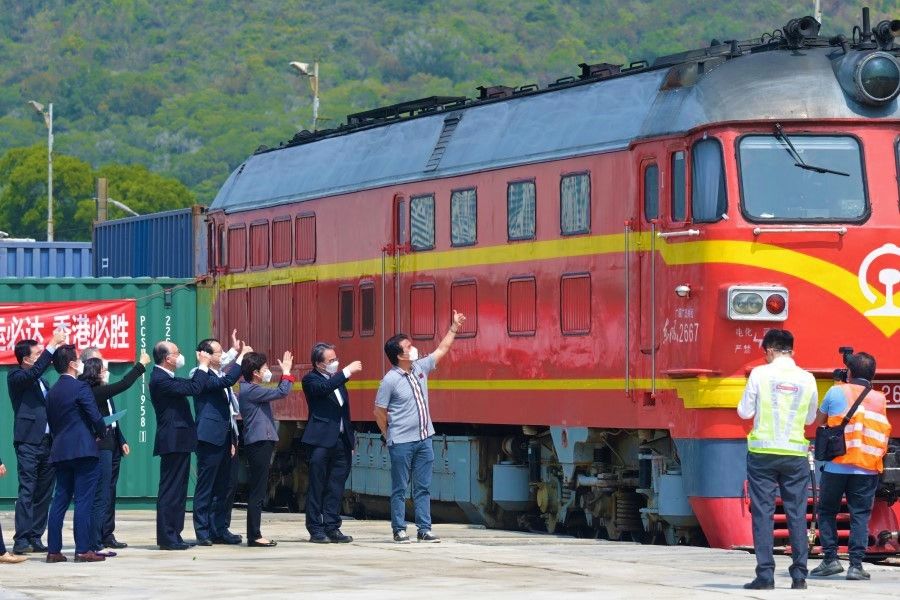
Motherland to the rescue
Back in 1998, when financier George Soros made his speculative attack on Hong Hong, the central government had supported the special administrative region (SAR), allowing then Financial Secretary Donald Tsang to counter the economic threat. When I was working in Hong Kong, I heard Tsang speaking proudly of this, but he expressed himself differently from the Hong Kong officials of today and did not thank the central government repeatedly. Nonetheless, he emphasised that being able to "rely on the motherland" was critical in winning the battle.
Nearly 25 years have passed and Hong Kong has undergone many changes. In retrospect, when "one country, two systems" was first implemented, no one knew how it would work exactly. The Hong Kong government's concept of "country" became clear when the central government came to its rescue at critical junctures.
To some Hong Kong officials, the return of Hong Kong to China might just be a process of redrawing China's map to include Hong Kong. But despite the differences in administrative approaches between the Hong Kong and central governments, and the fact that some Hong Kongers may not appreciate the mainland, the reality is, whenever Hong Kong faces economic and social pressures in terms of resources, the idea of having a "country" to rely on is reinforced.
Long-term planning and trust missing
Making plans for a rainy day is only possible when one becomes aware of threats while in a state of security, and the making of these plans often requires sand table exercises or trial runs. Without a fear of threats, the mindset is different. Colonial Hong Kong could lean on Britain, and after its return to China, there was the "motherland" to depend on. There were few threats to think of. Furthermore, Hong Kong has never been truly autonomous, and so its officials do not have a tradition of long-term planning, as can be seen recently from its managing of the deteriorating Covid-19 situation.
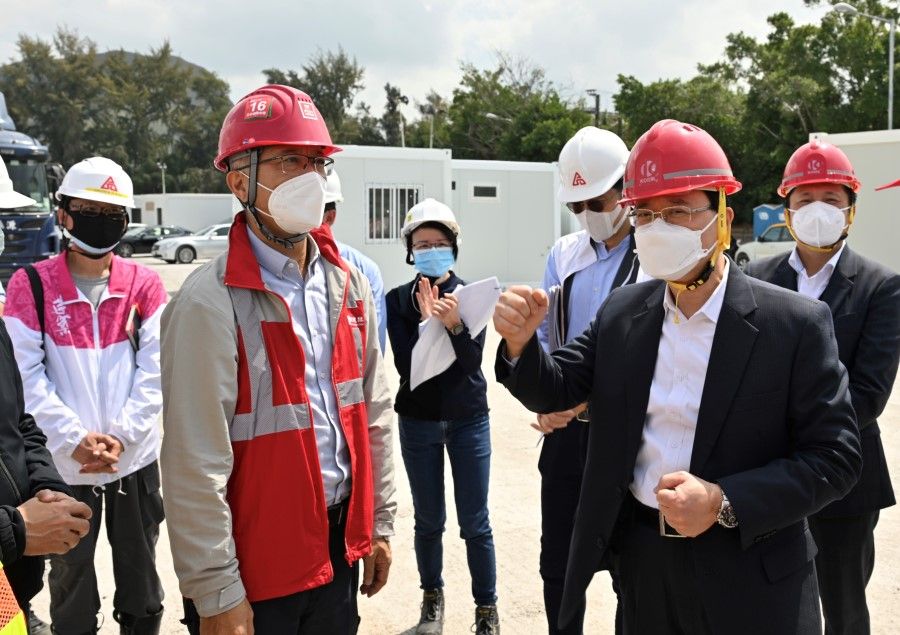
The pandemic has dragged on globally for over two years. With its dynamic zero-Covid policy, Hong Kong was doing well for a long time despite international dissatisfaction with the inconveniences to travel in and out of Hong Kong due to its strict anti-epidemic measures. To maintain open borders with the mainland, Hong Kong did not leverage its "special" status and chose to move in step with the mainland as "one country" fighting against "one pandemic".
... has the Hong Kong government been making long-term plans, including communicating with the central government to propose a Hong Kong-specific contingency plan?
Nonetheless, the question remains, besides defending its position, did the Hong Kong government assess the spread of the virus when the situation was stable and do a sand table exercise to prepare for sudden changes in epidemic conditions? And if Hong Kong did not have a choice but to implement the dynamic zero-Covid policy, what impact would it have on Hong Kong's economic model? Has Hong Kong thoroughly analysed and rehearsed its responses? Meanwhile, the related economic issues did not come without warning; there were already reports of multinational corporations withdrawing from Hong Kong.
According to figures from the European Union Office to Hong Kong and Macao, over the past year, 10% of Europeans have left Hong Kong because of its strict anti-epidemic measures. The Hong Kong government would have already been aware of these figures and trends, which are not intended as smears by the media.
All this has had a substantial impact on Hong Kong. Hence, has the Hong Kong government been making long-term plans, including communicating with the central government to propose a Hong Kong-specific contingency plan?
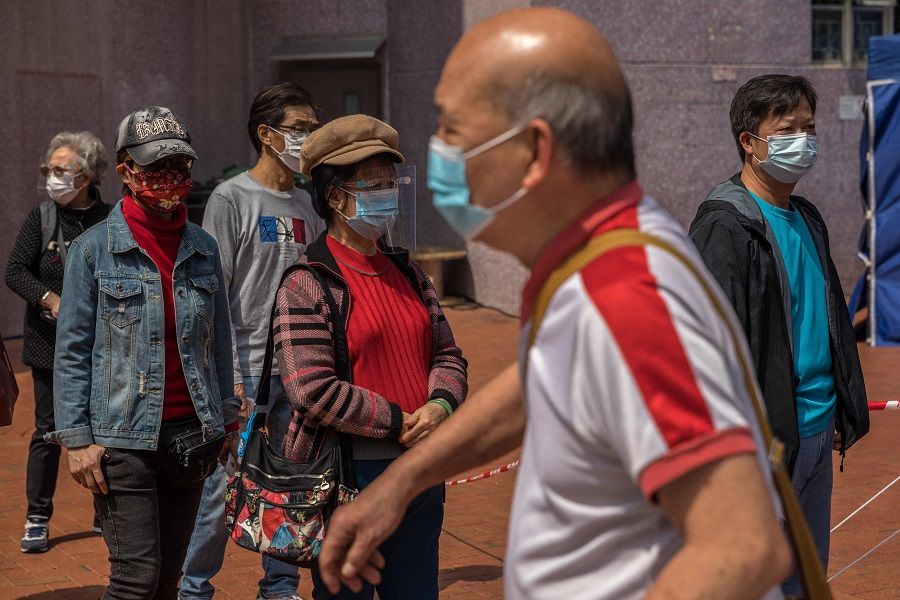
Because Hong Kong officials are increasingly fixated on the idea that "when our country [China] is doing well, Hong Kong will benefit a lot from it" and that they can always "rely on the motherland", the big mountain that Hong Kong is able to lean on gives one peace of mind and less worries.
However, Hong Kong officials certainly do not have an easy job. Since Hong Kong's return to China, the SAR has been entangled in at least three different relationships: one, the relationship between the central government and Hong Kongers; two, the relationship between the Hong Kong government and Hong Kongers; and three, the relationship between the Hong Kong and central governments.
... it is also easier said than done for the Hong Kong government to win the trust of the central government. They will need to learn and adapt to the different cultures of the mainland and Hong Kong governments.
These three relationships are also intertwined. In theory, a close relationship between the Hong Kong government and the central government should ensure the resources needed for Hong Kong's development, which would improve the relationship between the Hong Kong government and residents. But things often do not go as planned. As key officials in Hong Kong are appointed by the central government, Hong Kong officials trusted by the central government may not be trusted by Hong Kongers. Furthermore, it is also easier said than done for the Hong Kong government to win the trust of the central government. They will need to learn and adapt to the different cultures of the mainland and Hong Kong governments.
However, knowing when to applaud when listening to important speeches by central government leaders is merely fulfilling the formalities - the more important thing is to know how to communicate with mainland Chinese local officials and understand the bigger picture of the SAR and the country. Most Hong Kongers believe that key officials of the Hong Kong government will first consider the views of the central government and figure out what they mean before even making a move.
Without the foundation of trust from the central government, how would senior Hong Kong officials gain the drive and courage to express opinions that may differ from the central government or even propose ideas and suggestions from a Hong Kong perspective?
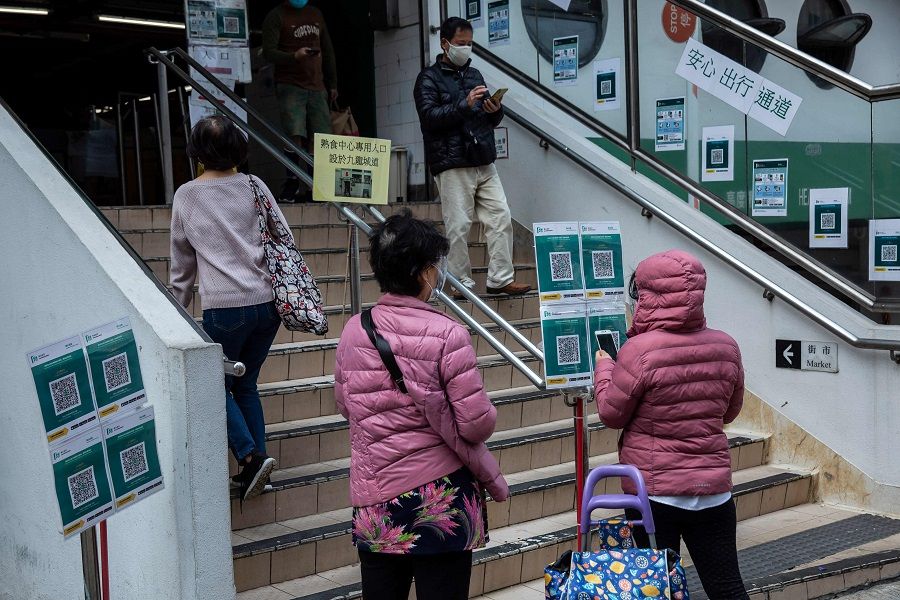
Without the foundation of trust from the central government, how would senior Hong Kong officials gain the drive and courage to express opinions that may differ from the central government or even propose ideas and suggestions from a Hong Kong perspective? Similarly, without the foundation of trust from Hong Kongers, how would the Hong Kong government implement policies smoothly?
Who will lead the anti-epidemic fight?
Amid Hong Kong's serious pandemic situation, it may not be the right time to consider all these. However, I believe that Hong Kong will survive the ordeal because the ability to "rely on the motherland" is indeed an important assurance for the SAR. But if the Hong Kong government passively waits for the central government to rescue them, this does nothing to help improve the three relationships mentioned above even once the pandemic crisis is resolved.
In response to Hong Kong's worsening pandemic situation, Chinese President Xi Jinping told the Hong Kong government to see stabilising and containing the outbreak as their "overriding mission" and instructed them to "mobilise all power and resources to take all necessary measures to ensure the safety and health of the Hong Kong people and ensure the stability of the society". But this instruction is premised on the important fact that the Hong Kong government must "take the main responsibility". In other words, the Hong Kong government needs to shoulder the heavy responsibilities of being in charge of the overall deployment and arrangements while the central government plays a supportive role to provide backup.
During this time, the central government could reduce its overt guidance to Hong Kong and allow its government the space to truly shoulder the "main responsibility".
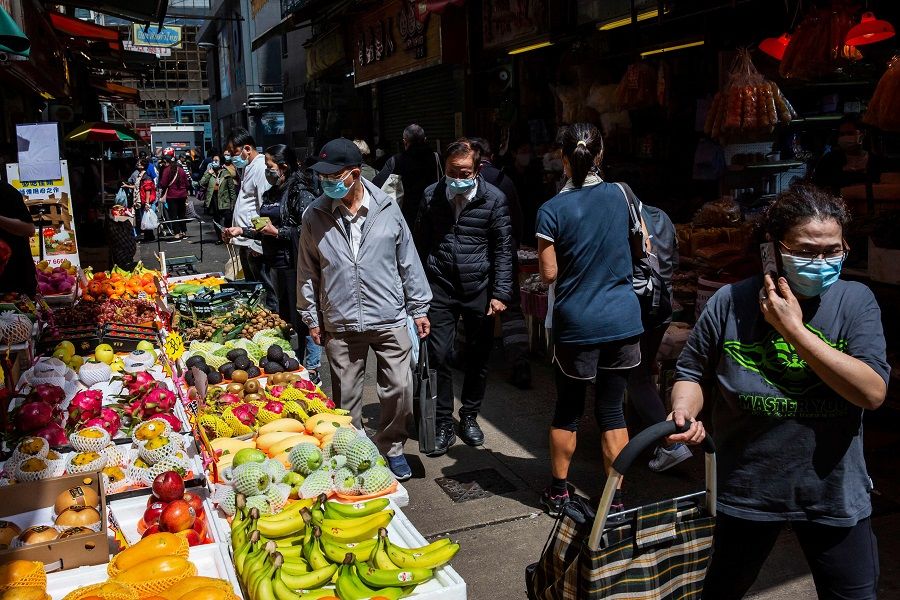
I have always thought that, in the fight against the pandemic, countries can learn from each others' responses in addition to sharing information about the virus and vaccines. However, different countries or even different cities must also take into account their own objective conditions and unique circumstances. The Hong Kong government should know Hong Kong's situation best. Now, are they able to turn the most dire situation into an opportunity to reach a consensus with the central government and bear the "main responsibility"?
Xia Baolong, director of the State Council's Hong Kong and Macau Affairs Office, said at a meeting to coordinate Hong Kong's anti-pandemic efforts on 3 March that Hong Kong officials should be courageous in shouldering heavy responsibilities, demonstrate their leadership and uphold their oath of office in fighting the pandemic.
During this time, the central government could reduce its overt guidance to Hong Kong and allow its government the space to truly shoulder the "main responsibility". The central government could also encourage the Hong Kong government to make carefully considered strategic deployments, so as to make full use of the resources provided by the central government to alleviate the pandemic.
This could also help iron out the relationships between the central government and Hong Kong; the Hong Kong government and Hong Kongers; and the Hong Kong and central governments. But of course, the key lies in whether the Hong Kong government has such great capacity and capability.
Related: Has Hong Kong been half-hearted about its 'zero-Covid' policy? | 'Zero-Covid' or living with the virus: Does Hong Kong know what it wants? | The helpless fate of seven million Hong Kongers fighting the pandemic | Hong Kong needs consultative democracy to build social consensus | Is China ready to live with the virus?
